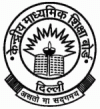(Notification) Examination Reforms and Continuous and Comprehensive Evaluation (CCE) in CBSE - 2010
Disclaimer: This website is NOT associated with CBSE, for official website of CBSE visit - www.cbse.gov.in
Scheme of Examination Reforms and Continuous and
Comprehensive Evaluation (CCE)
A. Class IX - 2009 –10 Academic Session
Strengthening Continuous and Comprehensive Evaluation (CCE) in Class
IX
(Second Term October 2009 – March 2010)
1. The Central Board of Secondary Education introduced Continuous and Comprehensive Evaluation in Primary classes in 2004 (Circular No. 5/18/25/04). The achievement records and its format was also circulated for Classes I to V with the objective of facilitating holistic learning in the school. The focus was on identifying the talents of the learner and empowering with positive inputs. The Board recommended a five Point rating scale, it also recommended the elimination of the pass /fail system at the primary classes (Circular No. 31/04/21/05). The Board has also followed it up by extending this scheme upto Classes VI to VIII and developed a CCE card on School Based Assessment for the same (Circular No. 2/06).
2. The scheme of Continuous and Comprehensive Evaluation (CCE) will be now further strengthened in all affiliated schools from October 2009. The Class IX students will be assessed through the CCE by the school itself. The strengthened CCE scheme will be applicable for the second term (October 2009 – March 2010) of the current academic year in Class IX.
3. In general, for the purpose of the CCE, an academic year has been divided into two terms. The first term will be from April – September and the second term from October – March.
4. The CCE in classes IX & X is intended to provide holistic profile of the learner through evaluation of both Scholastic and Co-Scholastic areas spread over two terms each during two academic years.
4.1 Evaluation of Scholastic areas: Each term will have two Formative assessments and one Summative assessment for evaluation of Scholastic areas.
4.1.1 Formative Assessment: Formative assessment is a tool used by the teacher to continuously monitor student progress in a non-threatening and supportive environment. If used effectively it can improve student performance tremendously while raising the self esteem of the child and reducing the work load of the teacher. Some of the main features of Formative assessment are that it is diagnostic and remedial, provides effective feedback to students, allows for the active involvement of students in their own learning, enables teachers to adjust teaching to take account of the results of assessment and recognizes the profound influence that assessment has on the motivation and self-esteem of students, both of which are crucial influences in learning. It is highly recommended that the school should not restrict the Formative assessment to only a paper-pencil test. There are other means of testing such as through quizzes, conversations, interviews, oral testing, visual testing, projects, practicals and assignments. For this year there will be only two Formative assessments for Class IX for the (remaining) second term. It is advised that the Schools may conduct more than two such assessments and take the best two out of those. Assessments done periodically will be shown to the students/ parents so as to encourage continuous participatory improvement.
4.1.2 Summative Assessment: The Summative assessment is the terminal assessment of performance at the end of instruction. Under the end term Summative assessment, the students will be tested internally based on the following criteria:-
a) Curriculum and Syllabus for Classes IX will be the same as circulated by the Board earlier.
b) The Summative assessment will be in the form of a pen-paper test conducted by the schools themselves. It will be conducted at the end of each term. c) In order to ensure standardisation, and to ensure uniformity, the Question Banks in different subjects to generate question papers will be forwarded by the Board to schools in March 2010.
d) In order to cater to difference in the pace of responding, the Schools will give flexible timing to the students during end term Summative assessment.
e) For this year, there will be only one term end Summative assessment for the (remaining) second term to be conducted in March 2010 for Class IX students.
f) Evaluation of answer scripts will be done by the school Teachers themselves on the basis of the Marking Scheme provided by the Board.
g) There will be random verification of the assessments procedures carried on by schools by the Board officials/nominees appointed by the Board.
